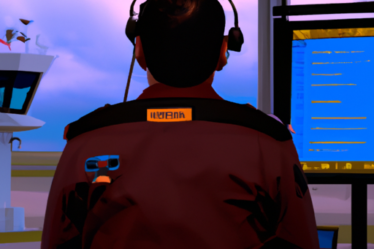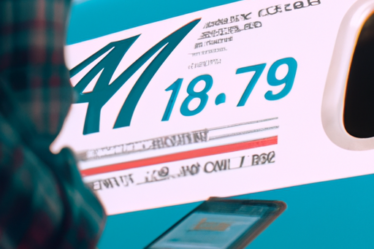
The Impact of Changes in Delta’s Loyalty Program on Customers
Delta Air Lines has long been known for its loyalty program, which has attracted a large number of frequent flyers over the years. However, recent changes to the program have left many customers feeling disappointed and frustrated. These changes have had a significant impact on the loyalty of Delta’s customers.
One of the major changes that Delta made to its loyalty program was the introduction of a revenue-based earning system. In the past, customers earned miles based on the distance they flew. Now, customers earn miles based on the amount of money they spend on their tickets. This change has been met with mixed reviews from customers.
On one hand, some customers appreciate the new system because it rewards those who spend more money on their flights. They argue that this change makes the program more fair and equitable. However, many customers feel that this change is unfair to those who are unable to afford expensive flights. They believe that the new system disproportionately benefits wealthier customers and makes it more difficult for average travelers to earn and redeem miles.
Another change that has impacted Delta’s loyalty program is the devaluation of miles. In the past, customers could redeem their miles for a wide range of rewards, including free flights, upgrades, and merchandise. However, Delta has made it more difficult for customers to redeem their miles for these rewards. The airline has increased the number of miles required for certain rewards and limited the availability of others. This has left many customers feeling frustrated and undervalued.
Furthermore, Delta has also made changes to its elite status program, which rewards its most loyal customers. In the past, customers could achieve elite status by flying a certain number of miles or segments. Now, customers must meet both a mileage requirement and a spending requirement. This change has made it more difficult for customers to achieve and maintain elite status, leading to a decline in loyalty among frequent flyers.
The changes to Delta’s loyalty program have not only impacted individual customers, but also corporate customers. Many businesses rely on loyalty programs to incentivize their employees to choose a specific airline for business travel. However, the changes made by Delta have made it more difficult for businesses to justify choosing Delta as their preferred airline. This has led to a decline in corporate loyalty and a loss of revenue for the airline.
In conclusion, the changes made to Delta’s loyalty program have had a significant impact on the loyalty of its customers. The introduction of a revenue-based earning system, the devaluation of miles, and the changes to the elite status program have all contributed to a decline in customer loyalty. These changes have left many customers feeling frustrated and undervalued, and have also impacted Delta’s corporate customers. It remains to be seen whether Delta will make further changes to its loyalty program in an effort to regain the loyalty of its customers.
Analyzing the Factors Contributing to Delta’s Declining Customer Loyalty

Delta Air Lines has long been known for its exceptional customer service and loyalty program. However, in recent years, there has been a noticeable decline in customer loyalty towards the airline. This article aims to analyze the factors contributing to Delta’s declining customer loyalty and shed light on the possible reasons behind this trend.
One of the main factors that have contributed to the decline in Delta’s customer loyalty is the increasing competition in the airline industry. With the rise of low-cost carriers and the expansion of other major airlines, customers now have more options to choose from. This increased competition has led to a decrease in customer loyalty as travelers are more likely to switch airlines based on price and convenience.
Another factor that has played a role in Delta’s declining customer loyalty is the changing expectations of travelers. In today’s fast-paced world, customers expect instant gratification and personalized experiences. Delta’s loyalty program, while still offering valuable benefits, may not be meeting the evolving needs and expectations of customers. As a result, some travelers may be seeking out other airlines that offer more innovative and personalized loyalty programs.
Furthermore, the recent changes to Delta’s loyalty program have also contributed to the decline in customer loyalty. In 2015, Delta made significant changes to its SkyMiles program, shifting from a mileage-based system to a revenue-based system. This change meant that customers would earn miles based on the amount spent on tickets rather than the distance traveled. While this change was intended to reward high-spending customers, it was met with backlash from frequent flyers who felt that their loyalty was no longer being adequately recognized.
In addition to these external factors, Delta’s declining customer loyalty can also be attributed to internal issues within the airline. One such issue is the frequent delays and cancellations that have plagued Delta in recent years. While these disruptions are often unavoidable due to weather or technical issues, they can significantly impact the travel experience and erode customer loyalty. Customers who experience repeated delays or cancellations may be more inclined to switch to another airline that offers more reliable service.
Another internal issue that has contributed to Delta’s declining customer loyalty is the perceived decline in customer service. In the past, Delta was known for its friendly and attentive staff. However, in recent years, there have been reports of rude and unhelpful employees, which has tarnished the airline’s reputation. Customers who have had negative experiences with Delta’s staff may be less likely to remain loyal to the airline.
In conclusion, Delta’s declining customer loyalty can be attributed to a combination of external and internal factors. Increased competition, changing customer expectations, changes to the loyalty program, frequent delays and cancellations, and a decline in customer service have all played a role in this trend. To regain customer loyalty, Delta will need to address these issues and find innovative ways to meet the evolving needs of travelers. By doing so, the airline can once again become a leader in customer loyalty within the airline industry.
Strategies to Regain Customer Loyalty in the Face of Delta’s Decline
The Decline of Delta Loyalty
In recent years, Delta Airlines has experienced a decline in customer loyalty. Once known for its exceptional service and customer satisfaction, Delta has struggled to maintain its reputation in the face of increasing competition and changing customer expectations. However, all hope is not lost. There are several strategies that Delta can employ to regain customer loyalty and win back the hearts of its passengers.
First and foremost, Delta must focus on improving its customer service. Many customers have reported instances of rude and unhelpful staff, which has left a sour taste in their mouths. By investing in comprehensive customer service training programs, Delta can ensure that its employees are equipped with the skills and knowledge to provide exceptional service to every passenger. Additionally, Delta should encourage its staff to go above and beyond for their customers, whether it be through small gestures like offering a complimentary upgrade or simply taking the time to listen to their concerns.
Another strategy that Delta can employ is to enhance its loyalty program. Many customers have expressed dissatisfaction with the current rewards offered by Delta’s SkyMiles program. By offering more enticing rewards, such as free flights or exclusive access to airport lounges, Delta can incentivize customers to remain loyal to the airline. Additionally, Delta should consider introducing a tiered loyalty program, where customers can earn additional benefits and privileges based on their level of loyalty. This not only encourages customers to fly with Delta more frequently but also gives them a sense of exclusivity and recognition.
Furthermore, Delta should invest in improving its in-flight experience. Many customers have complained about uncomfortable seating, outdated entertainment systems, and subpar meal options. By upgrading its fleet with more comfortable seats, state-of-the-art entertainment systems, and offering a wider variety of high-quality meal options, Delta can create a more enjoyable and memorable flying experience for its passengers. Additionally, Delta should consider offering unique amenities and services that set it apart from its competitors, such as complimentary Wi-Fi or in-flight spa treatments. These small touches can go a long way in winning back customer loyalty.
In addition to these strategies, Delta should also focus on improving its communication with customers. Many passengers have expressed frustration with the lack of transparency and timely updates during flight delays or cancellations. By providing clear and frequent communication, Delta can alleviate customer anxiety and demonstrate that it values their time and concerns. Additionally, Delta should actively seek feedback from its customers and take their suggestions into consideration. This not only shows that Delta values their opinions but also allows the airline to make necessary improvements based on customer feedback.
In conclusion, while Delta may have experienced a decline in customer loyalty, there are several strategies that the airline can employ to regain its reputation and win back the hearts of its passengers. By focusing on improving customer service, enhancing its loyalty program, investing in the in-flight experience, and improving communication with customers, Delta can once again become a leader in the airline industry. It is important for Delta to remember that customer loyalty is not easily won, but with dedication and a commitment to excellence, it is possible to regain the trust and loyalty of its passengers.


